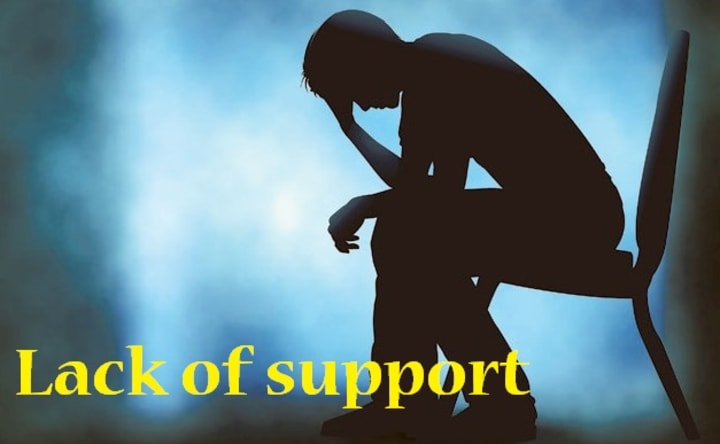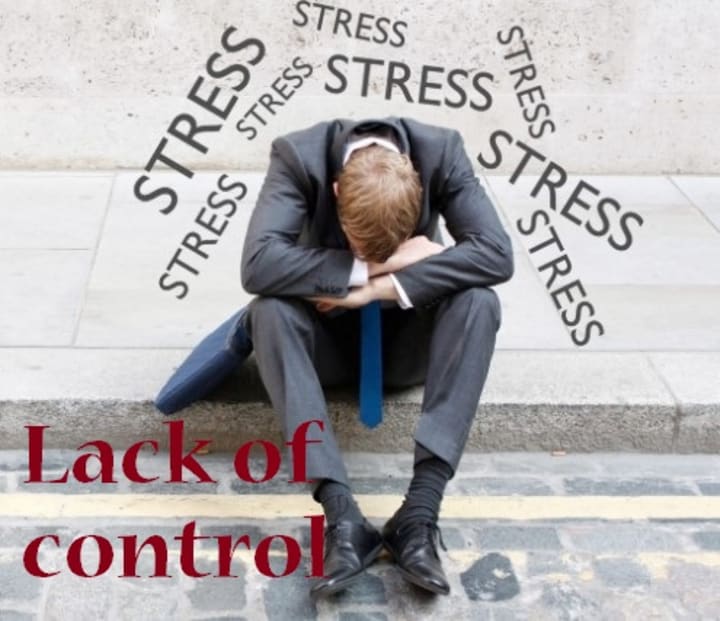10 Most Dangerous Causes of Stress
Financial struggles: Money worries are a common source of stress, as they can cause anxiety and worry about meeting basic needs and paying bills. Work-related stress: The demands of a job, long hours, and a high workload can all contribute to stress. Relationship issues: Difficulties in personal relationships, whether with a partner, family member, or friend, can cause a lot of stress. Health concerns: Chronic illness, injury, or other health problems can be a major source of stress, especially if they are severe or require ongoing treatment. Trauma: Experiencing a traumatic event, such as a natural disaster, accident, or violence, can have a lasting impact on mental health and cause ongoing stress. Lack of support: Feeling isolated or lacking a strong support system can increase stress and make it harder to cope with challenges. Difficult living situations: Struggling with housing insecurity, living in a high-stress environment, or dealing with difficult neighbors can all contribute to stress. Legal problems: Dealing with legal issues, such as a court case or divorce, can be stressful and overwhelming. Environmental stressors: Noise pollution, overcrowding, and other environmental factors can increase stress and affect mental health. Lack of control: Feeling like you have little control over your life or the events that happen to you can cause stress and lead to a sense of helplessness.


Financial struggle:
Financial struggles can be a major cause of stress as they can cause anxiety and worry about meeting basic needs and paying bills. This can lead to feelings of hopelessness and a lack of control over one's life. It can also cause conflict in relationships and create a sense of shame or embarrassment. Coping with financial struggles may involve seeking help from financial advisors or seeking assistance through programs such as food banks or rent assistance. It may also involve finding ways to reduce expenses and increase income, such as by finding a higher paying job or cutting back on unnecessary expenses.

Work-related stress:
Work-related stress can be caused by a variety of factors, including the demands of a job, long hours, a high workload, and difficult or toxic work environments. This type of stress can lead to burnout, physical and emotional exhaustion, and a decrease in productivity. It may also affect relationships with coworkers and loved ones and impact overall quality of life. To cope with work-related stress, it may be helpful to set boundaries, prioritize tasks, and find ways to relax and recharge outside of work. Seeking support from coworkers, supervisors, or a therapist may also be helpful in managing work-related stress.

Relationship issues:
Difficulties in personal relationships, whether with a partner, family member, or friend, can cause a lot of stress. These issues may involve communication problems, trust issues, or conflicts over values or goals. Relationship stress can lead to feelings of sadness, anger, and isolation and can affect overall mental health and well-being. To cope with relationship issues, it may be helpful to seek the support of a therapist or trusted friend, practice effective communication skills, and work on building trust and understanding in the relationship. It may also be necessary to set boundaries or seek outside help, such as through a couples therapy or mediation, to address more serious issues.

Health concerns:
Chronic illness, injury, or other health problems can be a major source of stress, especially if they are severe or require ongoing treatment. Dealing with a health issue can be physically and emotionally draining and may cause feelings of fear, anxiety, and sadness. It may also affect relationships and disrupt normal routines. To cope with health concerns, it may be helpful to seek support from loved ones, a healthcare professional, or a therapist. It may also be helpful to focus on self-care, such as by getting enough rest, eating a healthy diet, and finding ways to relax and reduce stress. Seeking out information and resources to better understand the health issue may also be helpful in managing stress.

Trauma:
Experiencing a traumatic event, such as a natural disaster, accident, or violence, can have a lasting impact on mental health and cause ongoing stress. Trauma can cause feelings of fear, anxiety, and grief and may lead to physical and emotional symptoms such as flashbacks, insomnia, and difficulty concentrating. It may also affect relationships and overall quality of life. To cope with trauma, it may be helpful to seek support from a therapist or trusted friend, practice self-care, and find healthy ways to cope with and process the traumatic event. It may also be helpful to seek out resources and information to better understand the impact of trauma and learn coping strategies.

Lack of support:
Feeling isolated or lacking a strong support system can increase stress and make it harder to cope with challenges. This can lead to feelings of loneliness, isolation, and hopelessness and may affect overall mental health and well-being. To cope with a lack of support, it may be helpful to seek out social connections and build a supportive network of friends and loved ones. Joining a group or club, volunteering, or seeking therapy or counseling may also be helpful in building a sense of community and finding support. It may also be helpful to focus on self-care and finding healthy ways to cope with stress, such as through relaxation techniques or physical activity.

Difficult living situations:
Struggling with housing insecurity, living in a high-stress environment, or dealing with difficult neighbors can all contribute to stress. These types of living situations can cause feelings of insecurity, fear, and anxiety and may affect overall quality of life. To cope with difficult living situations, it may be helpful to seek out resources and assistance, such as through a housing program or community resources. It may also be helpful to set boundaries and find ways to relax and recharge, such as through hobbies or self-care practices. Seeking the support of friends, loved ones, or a therapist may also be helpful in managing stress related to difficult living situations.

Legal problems:
Dealing with legal issues, such as a court case or divorce, can be stressful and overwhelming. Legal problems can cause feelings of uncertainty, anxiety, and anger and may affect relationships and overall well-being. To cope with legal issues, it may be helpful to seek the support of a lawyer or legal professional, as well as trusted friends or loved ones. Seeking therapy or counseling may also be helpful in managing stress related to legal issues. It may also be helpful to find ways to relax and recharge, such as through hobbies or self-care practices, and to stay informed about the legal process and progress.

Environmental stressors:
Noise pollution, overcrowding, and other environmental factors can increase stress and affect mental health. Environmental stressors may cause feelings of frustration, anxiety, and anger and may affect overall quality of life. To cope with environmental stressors, it may be helpful to find ways to reduce exposure to the stressor, such as by finding a quieter living environment or seeking out nature. It may also be helpful to practice relaxation techniques, such as deep breathing or meditation, and to seek the support of friends, loved ones, or a therapist. Finding ways to advocate for change and improve the environment may also be helpful in managing stress related to environmental stressors.

Lack of control:
Feeling like you have little control over your life or the events that happen to you can cause stress and lead to a sense of helplessness. This can cause feelings of anxiety, frustration, and a lack of purpose and may affect overall mental health and well-being. To cope with a lack of control, it may be helpful to find ways to take charge of your life and make small, manageable changes. Setting goals, finding ways to assert control in small ways, and seeking the support of trusted friends or loved ones may all be helpful in managing stress related to a lack of control. It may also be helpful to practice relaxation techniques and to focus on self-care to manage stress and improve overall well-being.






Comments
There are no comments for this story
Be the first to respond and start the conversation.